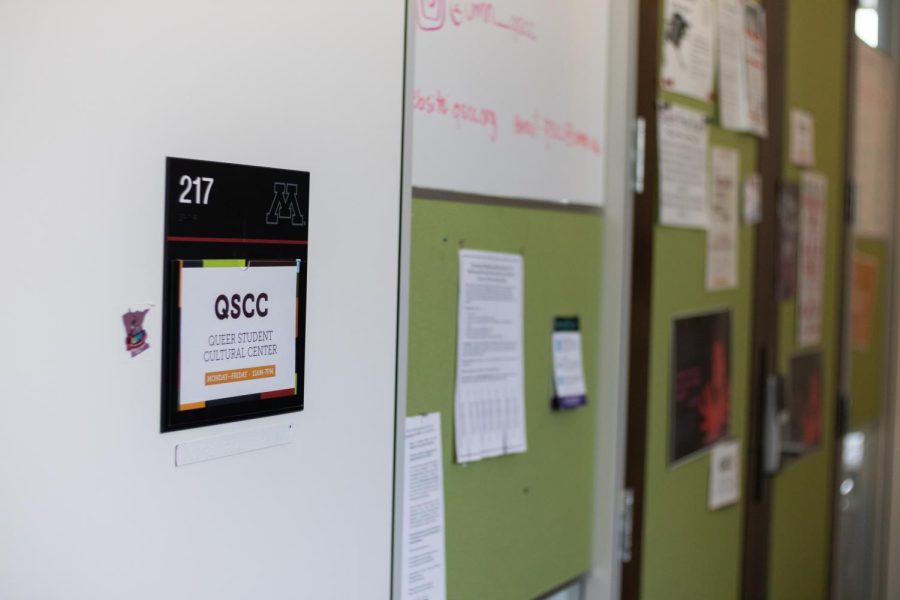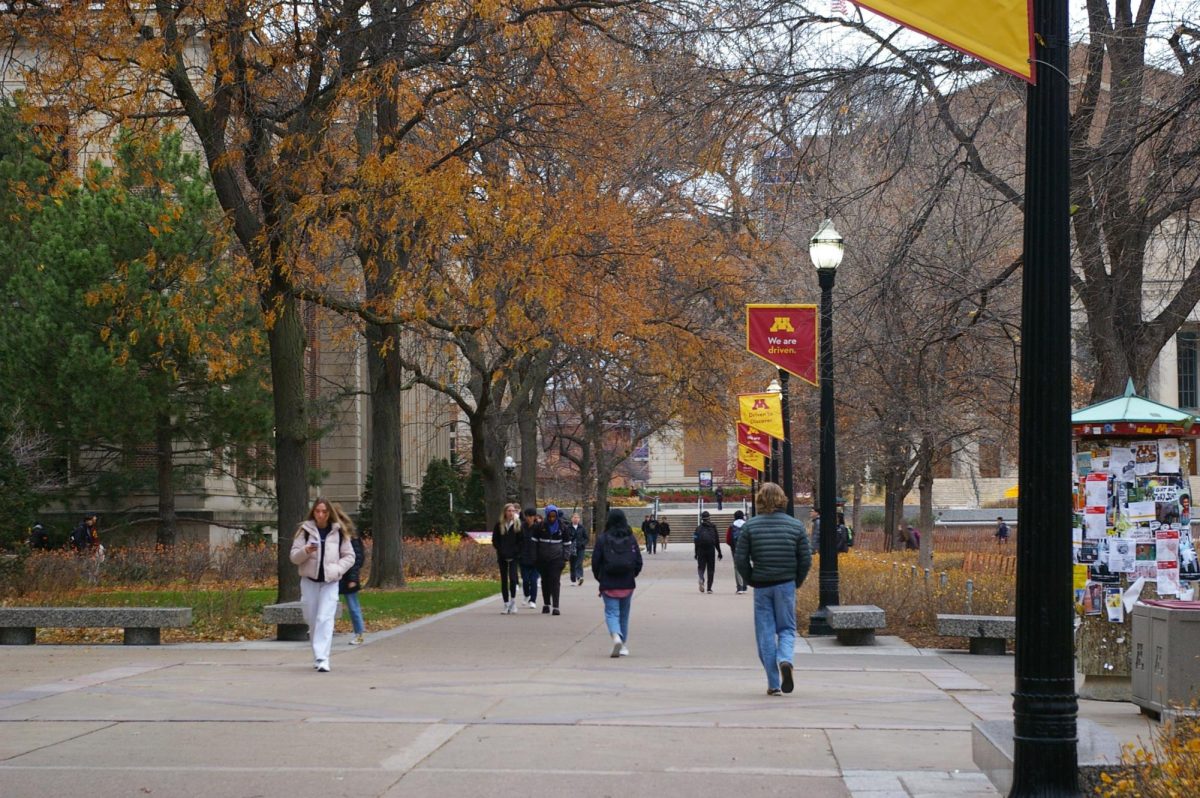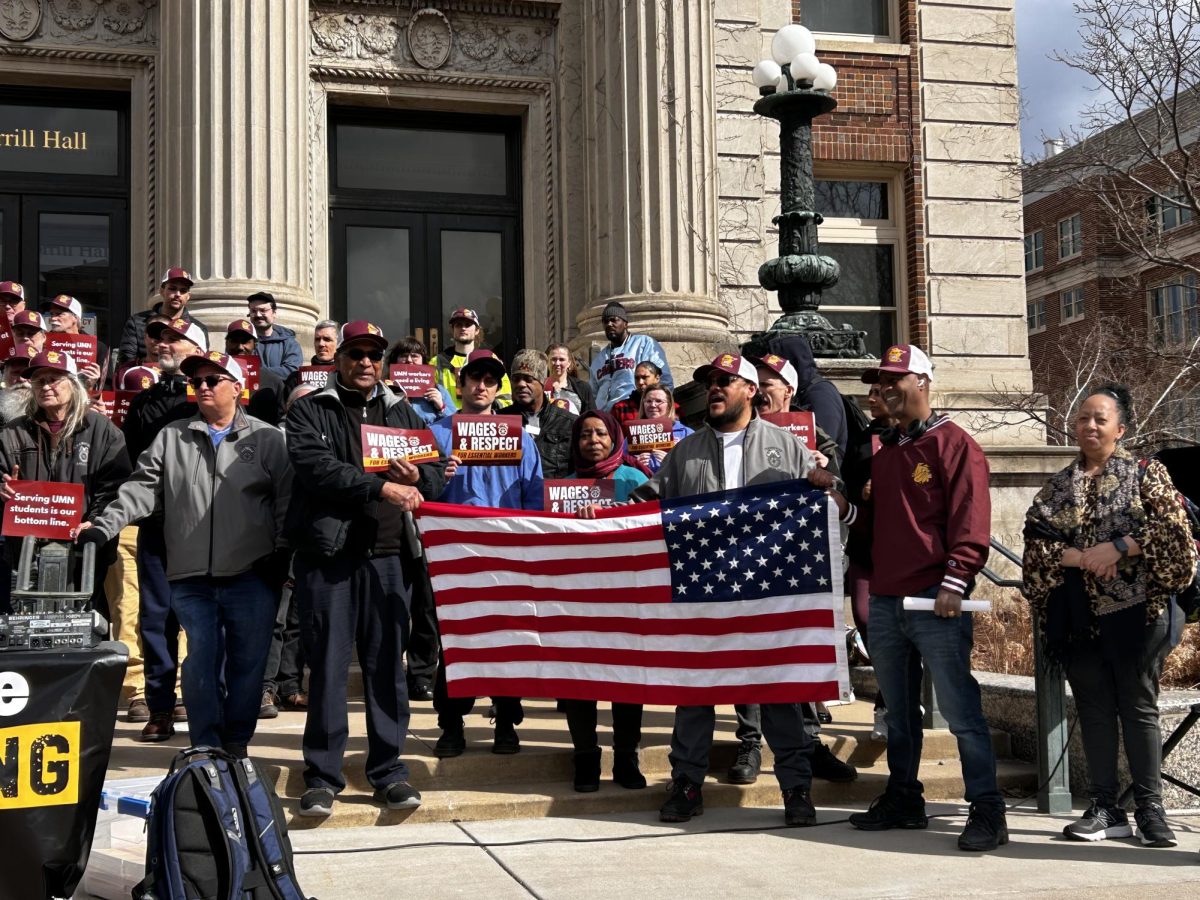The University of Minnesota’s Queer Student Cultural Center (QSCC) faces an uncertain future after some board members went on strike to protest allegations of racism and misconduct and the majority of the QSCC’s leadership resigned.
Eight members of the Board of Governors (BOG) went on strike starting April 2 due to a disagreement with the way the QSCC administration was handling allegations of racial microaggressions, according to former BOG member Lynn Dinh.
The QSCC is governed by administrators and the BOG, which has included up to 25 members during the spring semester. Members of BOG have a variety of responsibilities such as monitoring the QSCC’s physical space in Coffman Union and leading group meetings and events.
Dinh, one of the strike’s main organizers, resigned on April 9, citing frustrations with slow progress and a continually hostile work environment.
Those on strike stopped keeping the QSCC’s physical space open during their office hours, Dinh said. Some strikers also stopped leading their group meetings.
Strikers have also withheld some money raised in a recent fundraiser, Dinh said.
Strikers made a list of demands, including having the current administration resign, changing hiring and election processes and restructuring leadership. They also demanded the QSCC post a public apology.
Instances of racism and microaggressions
“I can tell you that in my three years at the University of Minnesota, I have never faced this level of racism,” Arthi Jegraj, a BOG member, said in an email to the Minnesota Daily.
Jegraj facilitates Roots, one of the QSCC’s identity groups. Roots is specifically for queer students of color.
Recently, they closed Roots meetings and online communities to anyone who does not identify as a person of color, stating, “there can be no safe space for queer BIPOC (Black, indigenous and people of color) folk within [the QSCC] if white folks are present.”
Sara Lam, the QSCC’s former treasurer, resigned in February due to feeling disrespected by other QSCC leaders. Lam said leadership repeatedly talked over people of color, including her and Dinh, in a way that felt discriminatory.
Both Lam and Dinh said when they tried to bring up unequal treatment and microaggressions, leadership did not fully address their concerns.
Lam and Dinh said members used their queer identity or disability as a shield to claim they could not have done anything racist. This caused their concerns to be pushed aside, they said.
One of the major changes both Lam and Dinh advocated for included updating the process for filing complaints about microaggressions and misconduct.
Members can currently file complaints about racism, or any other unacceptable behavior, in a “safer space report,” which the administration was responsible for addressing.
Dinh said complaints about racial microaggressions were improperly addressed and responses to complaints favored the education and comfort of the perpetrator, rather than the safety and comfort of the victims.
“The [QSCC] is actively making change because they have been pushed to do so after mishandling quite a few issues regarding racism, and I’m glad we’re on the path to doing better,” Jegraj said.
The future of the QSCC
The QSCC is one of nine student cultural centers on the second floor of Coffman Union. Student cultural centers are some of the most active University student organizations and have a long history of activism.
The QSCC was originally founded in 1969 as FREE, or Fight Repression of Erotic Expression. In 1998, it transitioned to its current name.
Four of the five administration members from this semester have resigned, including the president, vice president, treasurer and outreach manager.
Two administrative members resigned before conversations about restructuring and the depth of racism in the QSCC began, events manager Lauren Hagen said.
The three remaining administrative members sent a survey to BOG about whether they should remain in their positions, according to Hagen.
Hagen, who is the only remaining administration member, said the “vast majority” of BOG members voted for them to stay. However, more than half of BOG voted for the other two administrators to leave, which they did.
QSCC posted an apology to their Instagram page on April 7.
View this post on Instagram
“We write to you to offer our sincerest apologies for the many instances of racism that have occurred within our space,” the statement read. “Our actions and inactions have made it so our space has not been safe for people of color.”
The statement pledges to amend the group’s constitution to create a new governance system and update the system for addressing instances of harassment. It also requires board members to attend implicit bias and bystander intervention training.
Hagen said the QSCC hopes to have the current governance system fully replaced by a committee system by spring 2024. The QSCC will have a transitional committee-based system in fall 2023.
Former outreach manager Alexander Lucas said he saw the plans for the transitional committee-based system and is concerned it is not significantly different from the current system.
Lucas said he “wholeheartedly” agrees with strikers that the QSCC has not been a safe space for queer people of color and believes the proposed changes are insufficient in addressing their concerns.




















Nah
Apr 26, 2023 at 10:26 am
Oh wow, a bunch of idiots using buzzwords they don’t understand in an attempt to get attention. Shocking.